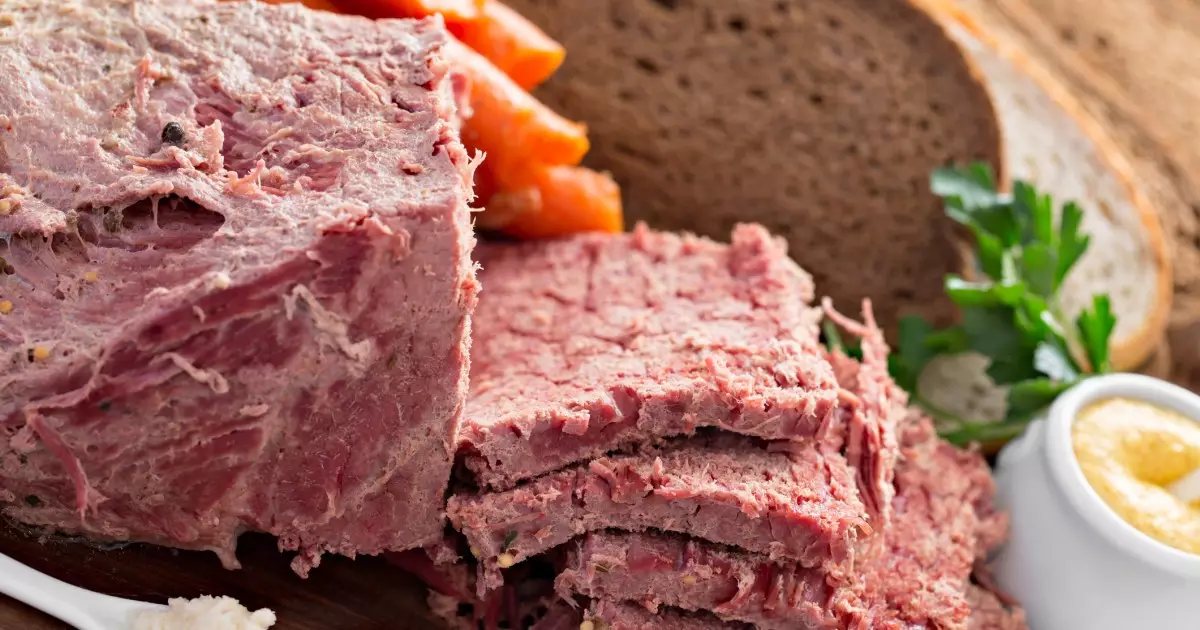During festive occasions like St. Patrick’s Day, it’s easy to feel compelled to share your festive meal with your furry friend. The temptation to give your dog a taste of corned beef can be strong, especially considering how much they seem to enjoy our leftovers. However, we must assess whether this friendly gesture is safe or if it poses a serious risk to their health. While it can be difficult to deny your pet a taste of your food—especially during special celebrations—it’s important to prioritize their wellbeing over fleeting moments of joy.
High Sodium Dangers in Corned Beef
Corned beef, a dish that many indulge in during Irish celebrations, is packed with sodium due to the brining process it undergoes. This means that while beef itself is a rich source of protein and nutrients like zinc and iron, corned beef, in its processed form, can be detrimental to dogs. Sodium is an essential mineral for many bodily functions, but excessive amounts can lead to issues such as hypertension and heart ailments. For dogs, especially smaller breeds, a small piece of corned beef may not seem harmful, but the cumulative effects of high sodium intake can be significant and damaging.
What Happens When Dogs Ingest Too Much Sodium?
When dogs consume excessive sodium, they can face a serious condition known as salt poisoning, which can manifest in extreme thirst, vomiting, diarrhea, or even more severe symptoms. The risk intensifies when larger amounts are consumed; dog owners should be especially vigilant if they suspect their pet has ingested a significant portion. If your dog exhibits behavior such as drinking water excessively or showing signs of lethargy after a potential sodium binge, it requires immediate veterinary attention. Prolonged exposure to high sodium levels can lead to dehydration, electrolyte imbalances, and can ultimately be fatal if left untreated.
Alternatives to Corned Beef
Rather than risking your dog’s health with corned beef, you might consider healthier alternatives that can safely satisfy their taste buds. Simple cooked meats without excessive seasoning—such as unseasoned chicken or turkey—can provide a tasty treat without the health risks. Furthermore, offering vegetables or small amounts of fruits can provide your dog with the nutrients they need while also keeping them away from potentially harmful foods. Training them to appreciate safe treats will foster a healthier relationship with food and promote their overall health.
Understanding the Health Responsibilities of Pet Ownership
Ultimately, sharing food with pets is a heartwarming gesture but one that comes with responsibilities. Owners must educate themselves about which human foods are safe and which might be harmful. The impulse to include your dog in celebrations can lead to poor dietary choices that have long-term health implications. Becoming more informed and making responsible decisions can significantly impact your dog’s quality of life. Our pets rely on us to keep them healthy and safe, and it’s our duty to ensure they don’t partake in meals that could jeopardize their wellbeing.

